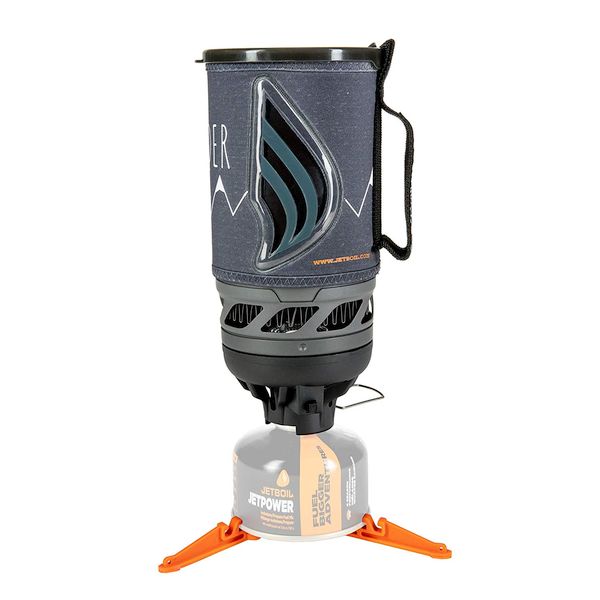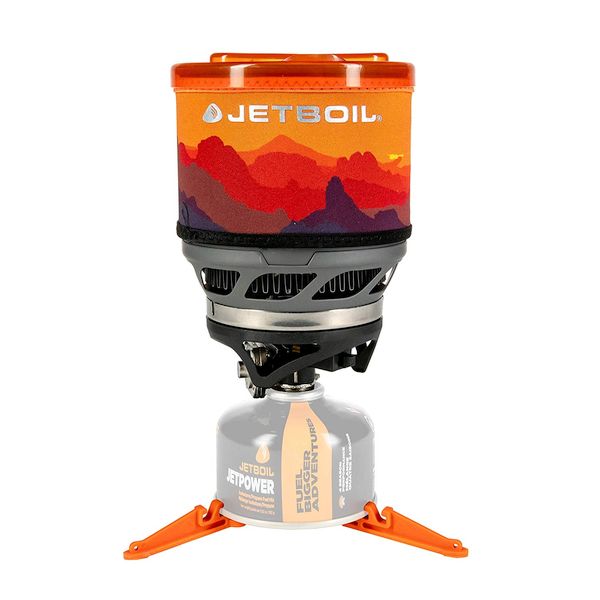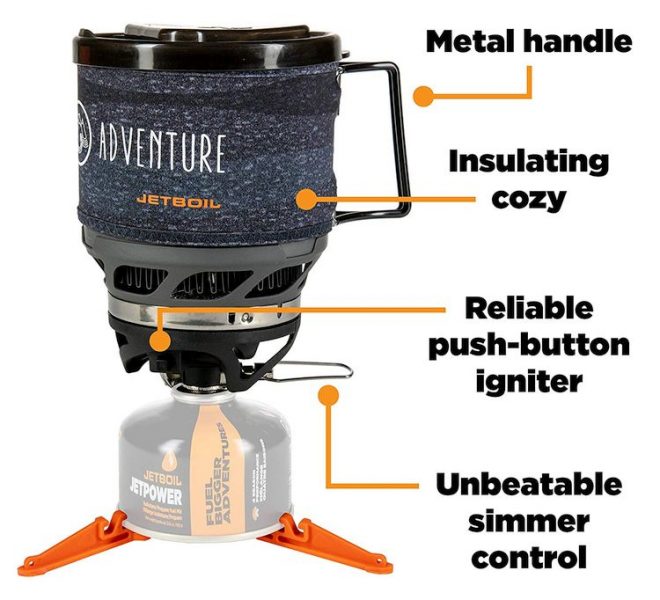Choosing the right stove for your camping trip can feel overwhelming due to the sheer amount of options available. There are some excellent options available. Therefore, knowing and understanding the strengths of these stoves can enable us to make a better choice. This article will keep its focus on Jetboil Flash vs MiniMo. Both of these are very popular, and very capable stoves. Even so, their intended use is different. Let’s see which one works best!
Jetboil Flash Pros And Cons

Pros
- Lightweight (as compared to MiniMo)
- Very quick to boil water
- Packs up into one small unit
Cons
- No regulator or flame control
- Susceptible to wind
- Relatively low versatility
See details and current price on Amazon
Jetboil MiniMo Pros And Cons

Pros
- 4-season camping stove
- Excellent fuel efficiency
- Packs up into one small unit
- Versatile
Cons
- Relatively slower at boiling water (as compared to Flash)
- Heavier, when compared to Flash
See details and current price on Amazon
Jetboil Flash Review — What Is This Stove About?
Features And Specifications
Jetboil Flash has been designed to boil water at a remarkably fast speed. This stove can boil half a liter of water in 100 seconds. That is a pretty high speed and a quick route to boiling water.
Keeping its focus on boiling water as fast as possible, the Jetboil Flash makes some compromises in other departments. The biggest example here is the regulator – or the lack thereof. You can’t set the flash to simmer water, and even to cook meals. This stove is determined to run full throttle, and that’s how it is going to be.
These qualities come in pretty handy when you intend to make yourself a cup of tea or coffee. While regular cooking is out of the question, the Jetboil Flash is extremely handy for dehydrated meals. I discussed some of these meals in the post about camping food ideas that need no refrigeration. If that’s your go-to style, you’ll love the Flash.
The stove weighs 13.1 ounces. It isn’t very light, but it is good enough to carry along for your camping trip. The dimensions are fairly compact as well, measuring 4.1 x 7.1-inches. Bear in mind, that does not include the weight of the gas canister, although that isn’t much of a problem either. The average JetPower canister weighs 100 grams (though more options are available).
The Stove In Use
Igniting the Jetboil Flash is a simple process; you just use the pushbutton igniter and the stove jumps into action. In case the igniter fails for some reason, an external source like a matchstick can be used.
A very cool thing I like is the thermochromatic, color-changing heat indicator on the insulating jacket. The paint changes color as the water comes to a boil. It’s a very nice visualization, although the color-changing part is obviously a bit gimmicky.
Flash stays true to its claim of heating water in 100 seconds and does so effectively. Of course, there are going to be some variations depending on ambient temperature and conditions. However, the swings aren’t big enough to doubt the company’s claims. It may take a few seconds more, or a few seconds less. But as a ballpark figure, the 100 second claim works just fine.
The conventional 100 grams fuel canister can be expected to boil 10 liters of water. That is convenient for a trip, but do budget fuel to be sure you’ve got enough. When in doubt, I’d suggest erring on the side of caution.
An included tripod stand helps the stove stay upright. The light plastic clips struggle at their job. Perhaps it is because the stove is tall, perhaps it is something else. You will have to be careful about the stove toppling over. That’s not to say it will fall flat at the first chance, just that it isn’t as stable as I would like it to be.
Another problem with the stove is that there is practically no shield on the flame. Even moderately windy conditions can make this stove unreliable. Remember to shield it well from wind, and there will be fewer problems to handle.
Jetboil MiniMo Review — What To Expect
There is obviously no connection, but I can never read or say MiniMo without referencing Mini-Me. There is just one letter to switch, perhaps it isn’t such a bad idea! Now that the joke is out of the way, let’s see more about the stove.
Features And Specifications

MiniMo is set up more to be a conventional stove, but of course, one geared towards camping enthusiasts. The convenience you have is the bigger part of this stove. I’m going to do a direct comparison between these two stoves later, but there are some points that must be mentioned first. The biggest difference is that the MiniMo has a regulator. You can adjust the flame to your specific needs, and cook food or boil water as you prefer.
In simple terms of boiling speed, the Jetboil MiniMo takes about 2 minutes and 15 seconds to boil half a liter of water. This isn’t terribly slow, but is noticeably slower than the Jetboil Flash. Where this unit shines is its efficiency and versatility. It is one of the more fuel-efficient stoves available on the market. From a cup of coffee to a full meal, the MiniMo can be used to meet your preference.
In terms of weight, the stove comes in at 14.6 ounces, without including the weight of the canister. Each canister will add another 100 grams. There are several lighter stoves available, but the MiniMo remains tolerably lightweight.
The maximum volume it can handle is one-liter, which is pretty good for most camping requirements. Sturdy, plastic-coated handles for the pot and cozy make things easier to maneuver. Oh, and I am somewhat partial to the colors and patterns available on the cozy.
The Stove In Use
Jetboil Minimo uses a pushbutton igniter to get the flame running. In case the igniter fails, external sources like a matchstick can be used to light up the flame. The simmering ability of this stove can be used at temperatures as low as 20F, which shows its use as a 4-season stove for camping.
The regulator makes convenient, incremental changes possible, allowing an easy way to control the flame and cook your food. Where efficiency is concerned, the MiniMo is simply stunning. The stove can be expected to boil 12 liters of water for every conventional (100 gram) fuel canister. It is both convenient and useful. The flame is well protected, and there is less of a worry about some wind blowing it off. It is not windproof, but some wind flow will not throw a wrench into the operation.
Jetboil Minimo uses the same tripod fuel-can support as the Flash, but is surer on its feet. That perhaps has more to do with the dimensions of 5 x 6-inches, but it does add more convenience to the mix. Guarding the stove is still a good idea, but you can afford to be a bit lax.
Jetboil Comparison — Jetboil MiniMo Vs Flash
Now that we know the basics, let’s take a look at the differences and features that set these two stoves apart. It should be pointed out that Jetboil uses gas canisters as fuel. These are tough to come by and can have some travel restrictions as compared to liquid fuel. One advantage of gas canisters is that they do not need to be pumped or primed before use. More options would certainly be welcome.
Boiling Water
Bringing water to a boil is one of the basic tests for this stove. Whether it is for a cup of coffee, or for a meal, there are a lot of things to do with water. The best Jetboil stove when it comes to boiling water fast, is the Flash. A hundred seconds to bring 17 oz of water to boil is not a bad deal.
MiniMo is a bit slower in terms of absolute numbers. It takes about 2 minutes and 15 seconds to boil the same amount of water.
If our only consideration was the speed of boiling water, the Jetboil Flash would win hands down. But speed isn’t our only concern. When I’m relaxing and camping, the 35 extra seconds that MiniMo takes isn’t really a dealbreaker. It’s 100 seconds to 135 seconds.
Philosophically, I’d say every second counts. Practically, I’m not that concerned.
Regulator And Flame Control
Jetboil Flash has no regulator. Once the pushbutton igniter is pressed and the flame’s up, that is how it is going to be. Once the flame goes up, it stays at whatever strength the canister can manage.
The flame you get is essentially dependent on canister pressure, and other variables like ambient temperature, altitude, and canister fullness.
A regulator adds more nuance. Users can now control the flow of the fuel, and bring it more in line with their requirements. Jetboil MiniMo has a fuel regulator that provides four different settings to control fuel as well as the flame. Better control over fuel is an obvious advantage if you intend to do any serious cooking. Letting the water or meal simmer as necessary enables users to cook more than just instant or dehydrated foods.
Another advantage regulators usually get is that the stove is likely to perform better in cold weather. Stoves with regulators, like the MiniMo, are 4-season stoves and can be used in temperatures as low as 20F. Those without a regulator are not as reliable in winter, and are better considered three-season stoves.
Adding a regulator also brings up weight and cost of a stove. This is one reason why the JetBoil MiniMo is relatively more expensive than the Jetboil Flash.
Weight And Compactness
Presence of the regulator adds more weight to the Jetboil MiniMo. It weights at 14.6 oz, while the Jetboil Flash is at 13.1 oz. Not so long ago, both of these could be considered fairly lightweight. However, the market now has more lightweight stoves. I won’t call these stoves heavy, but some trimming would do good to these stoves.
An advantage is that you can only carry the necessary amount of fuel. There is a good variety of Jetpower fuel cans available, and you can choose a volume that meets your specific requirements. Jetboil uses the same fuel blend for all its canisters.
Fuel canisters are not sold with the stoves and must be purchased separately.
Dimensions for both these stoves are fairly compact. MiniMo comes in at 5×6 inches, while Flash is slimmer and taller at 4.1×7.1 inches. The weight and volume are convenient enough to be placed in a backpack.
In terms of volume, both stoves have 1-liter capacity, which should be enough for most solo travelers and could be stretched to cover two people.
Fuel Efficiency And Versatility

With its focus squarely on boiling water as fast as possible, Jetboil Flash cannot be expected to beat MiniMo in terms of efficiency. This isn’t to say that the Flash is inherently inefficient. In fact, it is better in efficiency than several stoves available on the market. But we are comparing it to the MiniMo, and the MiniMo is very concerned with efficiency.
Jetboil MiniMo is practically a market leader in terms of fuel efficiency. A big reason for this is the wider flux ring used in the MiniMo. With more surface area on the flux ring, it can work better. In plain numbers, MiniMo consumes 6,000 BTU/hr (6 Megajoules per hour) of fuel. The same number for Flash is at 9,000 BTU/hr. On an average, while working off a 100 gram canister, the MiniMo can boil 12 liters of water, while the Flash can boil 10 liters of water.
The difference gets wider if it is windy. Jetboil Flash has little protection against the wind, and the flame can struggle a bit. MiniMo is better shielded from wind and remains relatively unaffected.
The slim and tall Flash is also more unsure of its footing, as compared to the MiniMo. A tripod stand can be used with either stove, but the MiniMo is just more convenient to work with.
Other Considerations For Your Stove
I feel the Jetboil Flash is deep in its niche. If the only requirement is to boil water and do it fast, this is the way to go.
For everything else, there’s MiniMo. I think this is the stove better suited for most campers. The water boiling time is acceptably fast, and there are several other features to depend on. Better fuel efficiency and greater control make this a better choice for the average camper. Plus, this is a four-season stove, so there is a wider scope and usability.
Which Stove Should I Buy?
Going by our Jetboil Flash vs MiniMo comparison, a thru-hiker relying on dehydrated meals and coffee may see value in the faster speeds and relatively lower weight of the Flash. Most regular campers, however, would likely find better value in the MiniMo. The wider feature set and greater reliability make this a convenient choice. There is a small price bump for the MiniMo, but I think given the added value, it is justifiable.
Buy the Jetboil Flash on Amazon
Buy the Jetboil MiniMo on Amazon
